Movies
Iceland: A Rising Filming Destination with Stunning Landscapes and Tax Incentives
Explore Iceland, a captivating filming destination known for its breathtaking landscapes and attractive tax incentives. Discover why filmmakers are flocking to this Nordic gem for their next cinematic masterpiece.
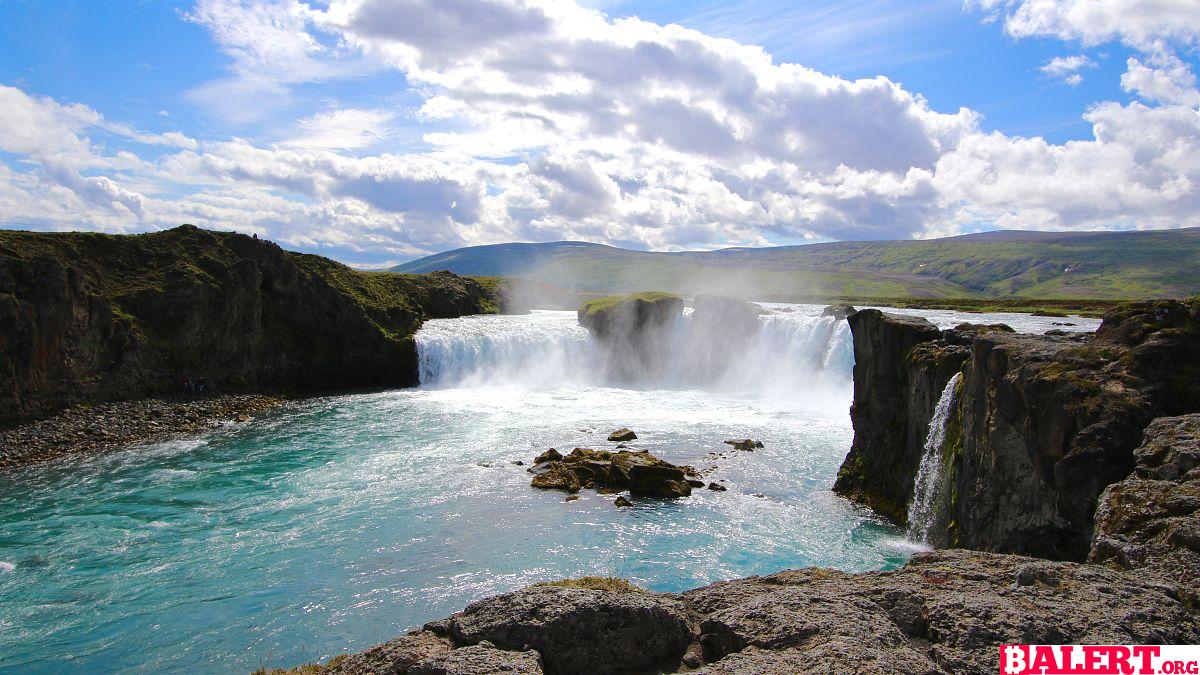
Welcome to the Land of Fire and Ice
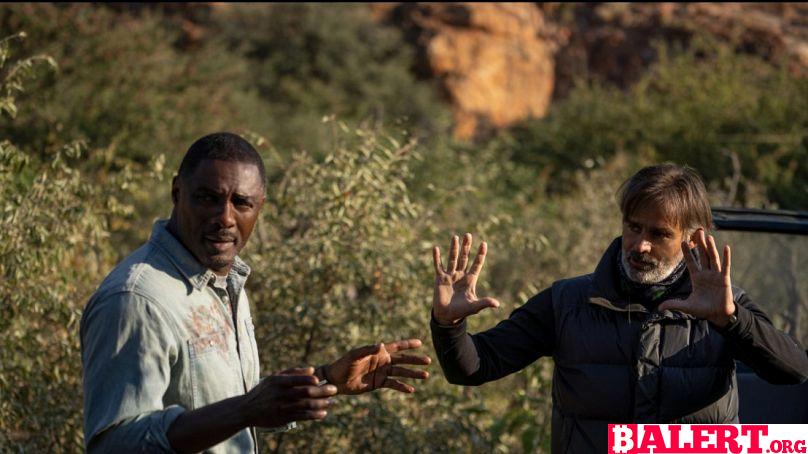
To many, Iceland is a breathtaking land defined by its striking contrasts of fire and ice. However, an increasing number of people are discovering Iceland as a land of opportunity. This stunning island nation has become a sought-after destination, not only for tourists but also for filmmakers from around the globe eager to capture its dramatic landscapes in feature films and television series. Moreover, the country offers an attractive incentive scheme for productions that choose to film here.
Over recent years, some of the biggest blockbusters and television hits have been filmed in Iceland, including Thor: The Dark World, Prometheus, Batman Begins, Star Wars: Rogue One, Star Wars: The Force Awakens, No Time To Die, and, perhaps unsurprisingly, Game of Thrones. Notably, Icelandic director Baltasar Kormákur, whose latest film Beast, featuring Idris Elba, has just hit theaters, has recently opened two film studios—RVK Studios—to accommodate this growing demand for filming in Iceland.
Building a Creative Hub
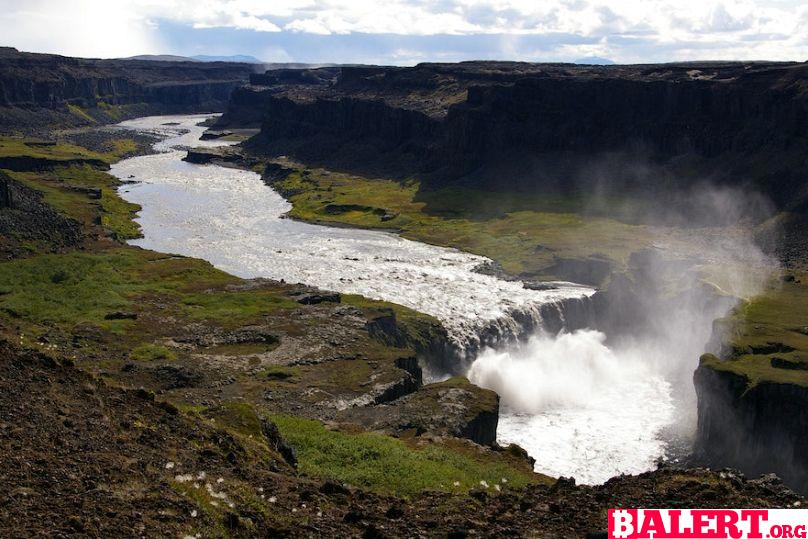
Kormákur shared his vision with Euronews Culture, stating, “I had a smaller studio for myself back in the day, and I had this idea to build a village. We spoke to the mayor of Reykjavík to support the idea of transforming this industrial space in Reykjavík into something new. It was an area that wasn’t used, and I saw the beauty of it.”
RVK Studios is owned by Kormákur, who made his directorial debut with 101 Reykjavík in 2000. Since then, he has been a prolific writer, director, and producer, working on an array of films and television series both in Iceland and Hollywood. The studio has been involved in numerous Hollywood productions such as Two Guns, Contraband, and Everest, along with popular Icelandic television series like Trapped and Katla.
Why Choose Iceland?
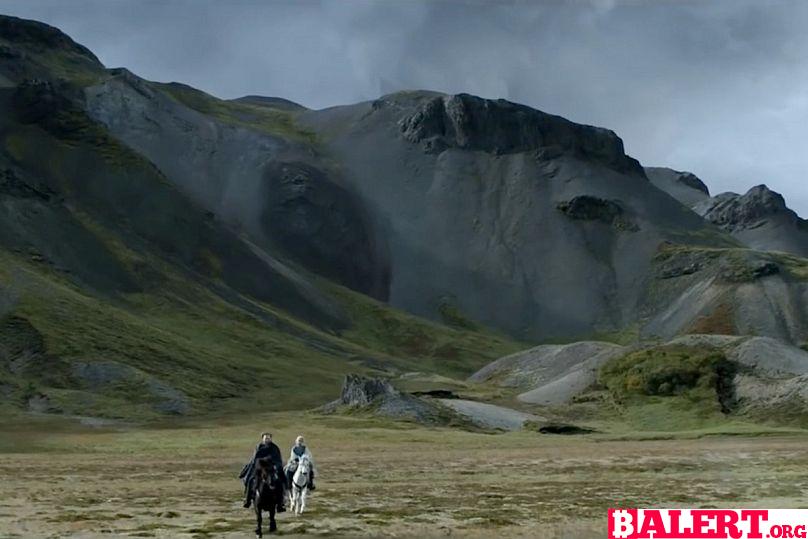
Despite its remote location in the North Atlantic, Iceland has emerged as a preferred filming location with new productions being announced continuously, drawn by the island’s stunning beauty. Kormákur humorously remarked, “Iceland is an attractive location for me because I live here. But for foreign studios, they come here because we have built a great crew and because of the landscape.”
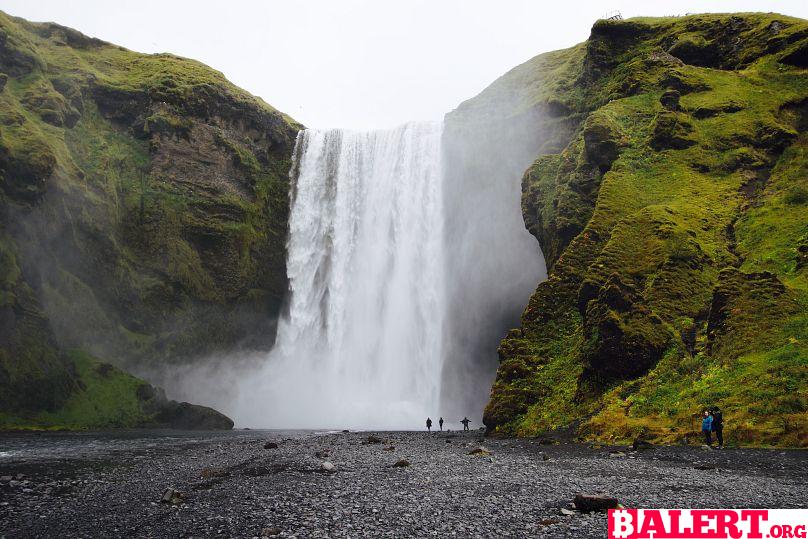
The landscape of Iceland is nothing short of extraordinary, ranging from majestic waterfalls to unique highland deserts. The contrasts presented by its natural beauty are simply breathtaking. Leifur B. Dagfinnsson, the CEO and founder of the Icelandic production company Truenorth, noted, “Iceland’s popularity stems from the magnificent locations we have, along with the accessibility to vast landscape settings.”
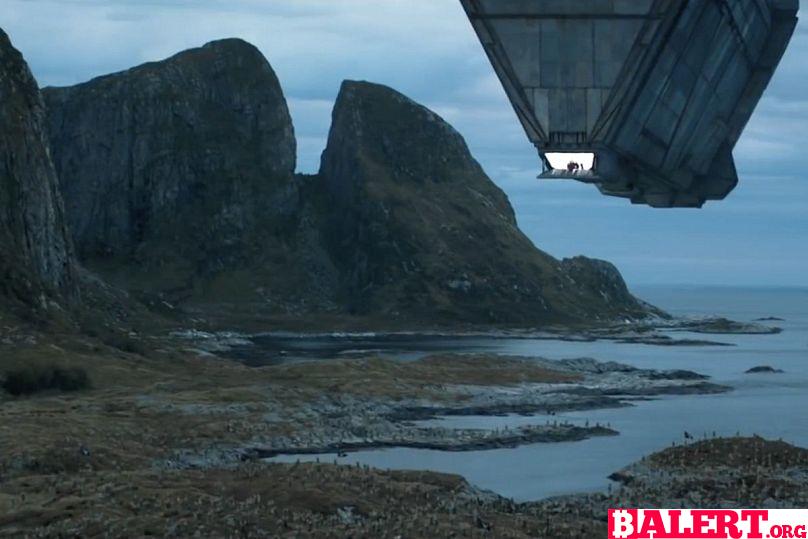
Truenorth has been involved in high-profile productions such as The Midnight Sky, Dune, and The Northman. Dagfinnsson emphasized, “We can make things happen in harsh environments while ensuring the safety of everyone involved. We take crews to glaciers, mountains, and the highlands.”
The versatile landscapes of Iceland can effectively stand in for various countries. For example, in The Secret Life of Walter Mitty, Icelandic scenery was used to represent Iceland, Greenland, and even the Himalayas. Dagfinnsson explained, “This approach saves studios a lot of hassle, as one country can represent many different locations.”
Attractive Tax Incentives
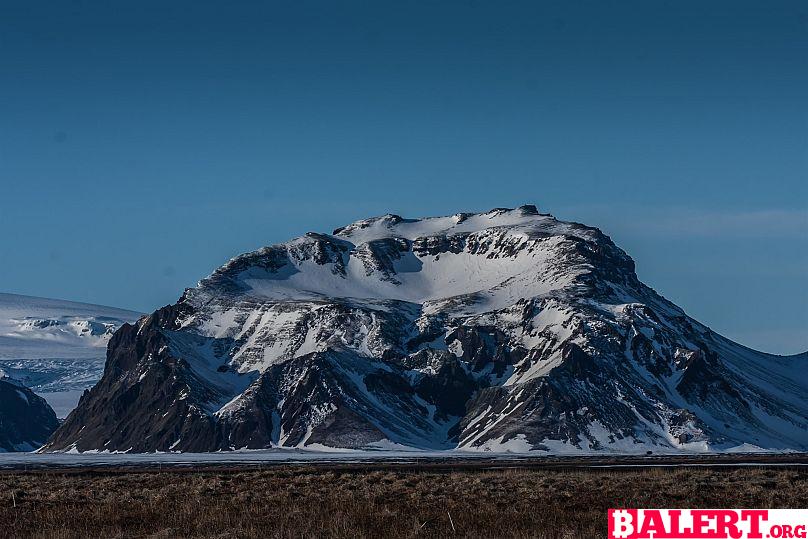
In addition to its breathtaking landscapes, Iceland’s appeal is significantly enhanced by the government’s program that reimburses up to 35% of production costs incurred while filming films and television shows in the country. Productions can claim refunds on costs related to employees and contractors as long as they are verifiably taxable in Iceland.
Every production, whether a feature film, television show, or documentary, is eligible for a 25% refund on costs incurred in Iceland, regardless of the project’s total expenses. To qualify for the maximum rebate of 35%, a production must meet three essential criteria:
- The production costs incurred in Iceland must reach a minimum of ISK 350 million (€2.5 million).
- The project must involve a minimum of 30 working days in Iceland, which can include filming and defined post-production work days. Of these, at least 10 must be actual filming days in Iceland.
- The project must employ a minimum of 50 staff members for at least 50 working days, with salaries and payments taxed in Iceland.
Dagfinnsson remarked, “The tax incentive offered by the Icelandic government plays a crucial role in attracting productions to shoot in Iceland for the entire duration of their film or television series, rather than just for landscape shots. It’s truly a game changer.” Kormákur echoed this sentiment, stating, “The government has been supportive, raising the rebate to 35%. The Icelandic Króna is flexible, and there’s optimism that this change will significantly impact production interest.”
With RVK Studios and Truenorth managing numerous projects at various stages of production, the future looks promising. Kormákur shared, “We will have three stages operational by late Fall, and one is already fully booked. True Detective, featuring Jodie Foster and Sigourney Weaver, is set to shoot here for half a year, and Iceland will be portrayed as Alaska in the series.” Meanwhile, Truenorth is working on the Netflix action-thriller Heart of Stone, starring Gal Gadot. Earlier this year, the production took over downtown Reykjavík for four days, involving 600 crew members and 400 extras, marking it as the largest production ever filmed in Reykjavík.
Movies
Pedro Almodóvar’s The Room Next Door: A Bold Exploration of Mortality and Friendship
Dive into Pedro Almodóvar’s ‘The Room Next Door’, a captivating film that intricately weaves themes of mortality and friendship. Experience a bold narrative that challenges perceptions and celebrates the bonds that define us.
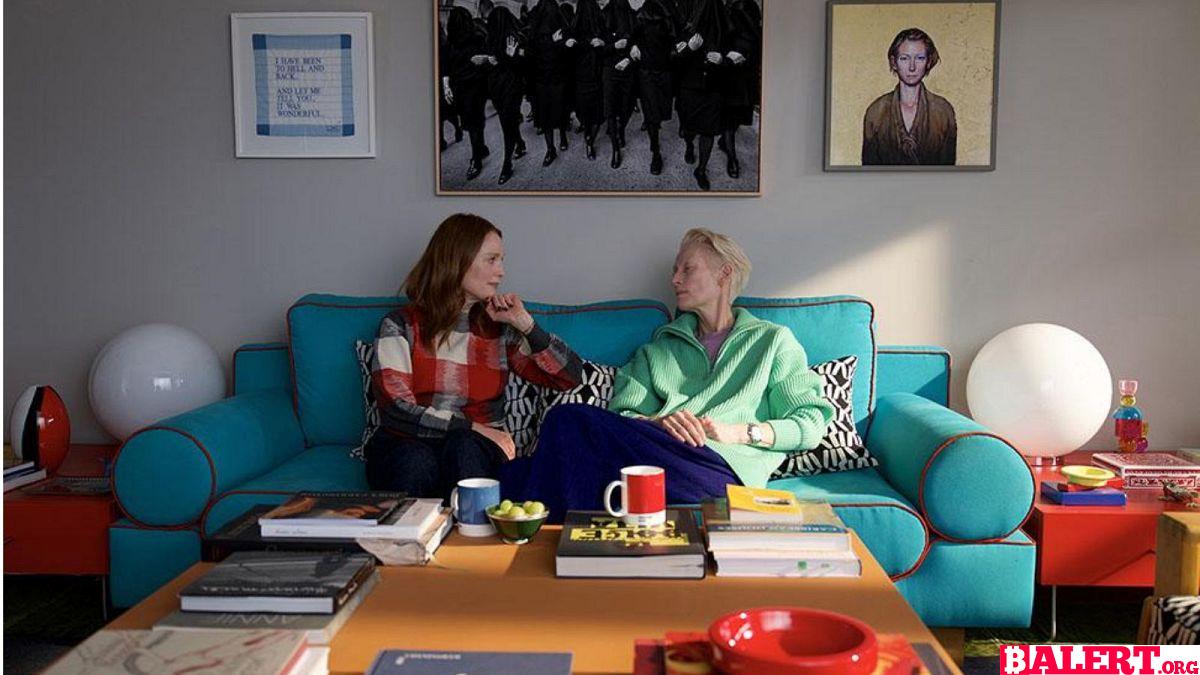
Exploring the Profound Shift in Pedro Almodóvar’s Latest Film, The Room Next Door
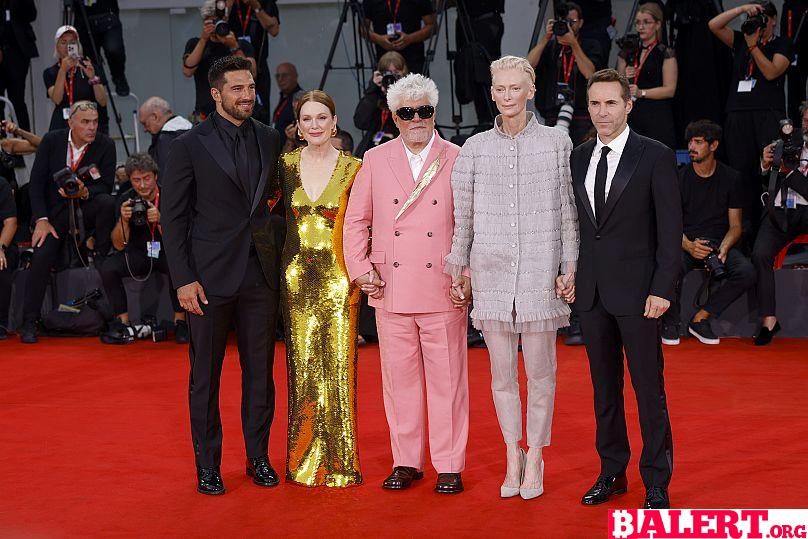
Renowned for his vibrant production design, whimsical storytelling, and audacious exploration of societal taboos, Pedro Almodóvar’s films often transport viewers to eccentric worlds that pulsate with life yet remain slightly off-balance due to sharp dialogue and flamboyant aesthetics. However, his latest endeavor, The Room Next Door, marks a significant departure from his established style. This film delves into the sensitive subject of assisted death, presenting it with a bold yet tender approach. Almodóvar’s signature tone and visual flair are still present but are now infused with a deeper sense of gravity.
This evolution in Almodóvar’s filmmaking approach is particularly intriguing as this marks his first venture into English-language cinema, following his shorter works, Strange Way of Life (2023) and The Human Voice (2020). As he previously noted, this transition signifies the beginning of a “new era” in his artistic journey, yet the right project for such a momentous change did not emerge until he encountered Sigrid Nunez’s novel, What Are You Going Through. The novel’s core explores the intimate conversations between a woman and her terminally ill friend, providing a poignant backdrop for Almodóvar’s exploration of mortality.
Related
- Venice 2024 review: ‘The Order’ – Jude Law vs white supremacists
- Venice 2024 review: ‘The Brutalist’ – Brady Corbet’s masterful American saga
At the heart of The Room Next Door lies the character of Ingrid (played by Julianne Moore), an autofiction writer grappling with her fear of death, even as she works on a book intended to confront this very fear. Her life takes a poignant turn when she learns that her old friend, Martha (embodied by Tilda Swinton), is facing terminal cancer. This revelation prompts a profound reconnection between the two, culminating in Martha’s request for Ingrid to stay with her in a rented house, where she plans to take a euthanasia pill: “I’m ready to go,” she confesses. “I’d even say I’m impatient.”
Echoing the structure of a theatrical play, where time and space condense into a singular setting, Almodóvar’s film shines brightest in its portrayal of the evolving bond between Ingrid and Martha. Their relationship unravels within the confines of homes adorned in vibrant colors—lush greens, striking reds, and whimsical banana-themed decor. As Julianne Moore articulated during a press conference following the film’s premiere at the Venice Film Festival, “We very rarely see a film about female friendships, and especially female friendships that are older.”
The essential theme of autonomy over one’s own life and death resonates throughout the film. While this topic has been touched upon in cinema before—most notably in films like 2007’s Le Scaphandre et le Papillon (The Diving Bell and the Butterfly) and 2022’s Plan 75)—it remains a largely taboo subject. Euthanasia, for instance, is currently legalized in only four European countries, and the broader discussion of mortality is often shied away from in Western culture.
Related
- Venice 2024 review: ‘Babygirl’ – Nicole Kidman shines in sex-positive BDSM drama
- Venice 2024 review: ‘Maria’ – Angelina Jolie’s (divine?) take on Maria Callas
The Room Next Door effectively sheds light on these pressing issues in a mostly impactful and resonant manner, particularly as the narrative approaches its second act. However, there are moments where the dialogue feels overly simplistic and literal. For instance, during a conversation in which Martha informs her ex-boyfriend about her pregnancy, his response is notably detached: “I was planning on moving to San Francisco next week.” Another instance features Ingrid suddenly discussing finding a gym in the midst of a serious conversation about death, as if every fleeting thought must be verbalized. While this blunt style is characteristic of Almodóvar, the film’s first English-language script may contribute to a sense of disconnection in a narrative addressing such sensitive themes, potentially undermining its emotional authenticity.
Despite these occasional narrative hiccups, the film’s core message remains poignantly clear: the importance of having autonomy over our own existence. While the majority of us may never have the privilege of choosing to pass away in a lavish glass house, adorned in red lipstick and lounging on Hockney-colored sunbeds, we should still possess the fundamental right to dictate the course of our own lives and deaths—especially when faced with a diminished quality of existence. As Martha poignantly reflects, “there are lots of ways to live life inside a tragedy”—thankfully, The Room Next Door is not one of them.
Movies
Pixar’s Inside Out 2 Breaks Box Office Records as Highest-Grossing Animated Film
Discover how Pixar’s Inside Out 2 shatters box office records to become the highest-grossing animated film of all time. Explore the magic behind its success and the emotional journey that captivated audiences worldwide.
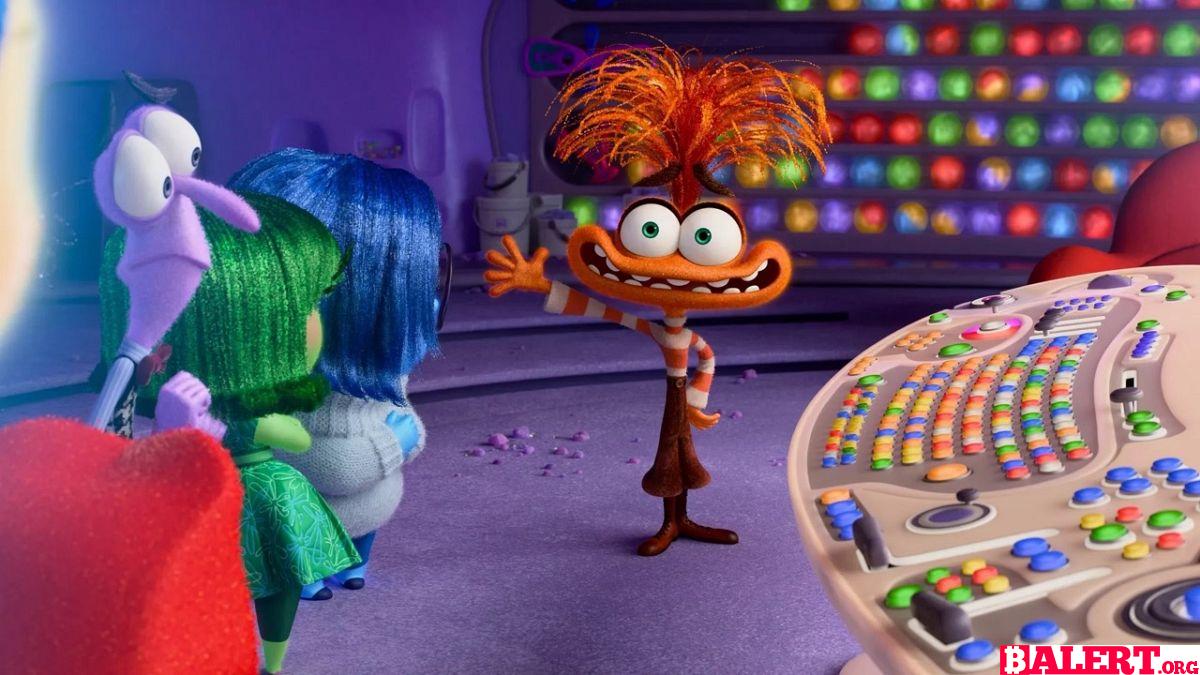
Pixar’s Inside Out 2 Sets New Milestone in Animation
Pixar’s highly anticipated sequel, Inside Out 2, has made history by becoming the first animated film to surpass the remarkable $1 billion (€894.3 million) mark at the international box office. This groundbreaking achievement was reported by Hollywood news site Deadline, highlighting the film’s impressive ability to resonate with audiences worldwide.
The coming-of-age adventure crossed this monumental threshold after accumulating an additional $9.1 million (€8.1 million) internationally over the weekend. The film’s success places it among an elite group of just 12 films that have reached this coveted milestone, with Inside Out 2 being the sole animated feature in this prestigious club. Other notable films in this exclusive category include:
- Avatar and its sequel Avatar: The Way of Water
- Titanic
- Avengers: Endgame
- Avengers: Infinity War
- Star Wars: Episode VII – The Force Awakens
While these impressive box office figures signify global success, the film’s top international markets have been particularly noteworthy. The leading countries contributing to its earnings include:
- Mexico: $102.2 million (€91.4 million)
- Brazil: $80 million (€71.5 million)
- The United Kingdom: $72.7 million (€65 million)
- France: $62.6 million (€56 million)
- South Korea: $60.8 million (€54.4 million)
According to BoxOfficeMojo, which meticulously tracks box office revenue, Inside Out 2 has also garnered an impressive $646.3 million (€578 million) within U.S. cinemas alone. The film officially claimed the title of the highest-grossing animated film of all time back in July 2024, surpassing the previous record held by Frozen II, which had maintained its position since 2019.
This sequel to Pixar’s critically acclaimed and commercially successful 2015 original continues the endearing journey of young Riley as she navigates the challenges of high school. The film explores how this pivotal life stage affects the anthropomorphized versions of her emotions, brought to life by a talented ensemble cast featuring Amy Poehler, Maya Hawke, and Ayo Edebiri.
Movies
Colin Farrell and Brendan Gleeson Star in ‘The Banshees of Inisherin’ at Venice Film Festival
Join Colin Farrell and Brendan Gleeson as they take center stage in ‘The Banshees of Inisherin’ at the Venice Film Festival. Discover the captivating story and emotional performances that have audiences buzzing in this cinematic masterpiece.

Colin Farrell and Brendan Gleeson Reunite in “The Banshees of Inisherin”
Actors Colin Farrell and Brendan Gleeson are set to recreate the magic of their previous collaborations in their latest film, The Banshees of Inisherin, which recently premiered at the illustrious Venice Film Festival. This poignant narrative explores the complexities of friendship through the lives of best friends Pádraic (played by Farrell) and Colm (portrayed by Gleeson), who reside on a picturesque yet remote island off the west coast of Ireland.
Their idyllic friendship takes a sudden twist when Colm unexpectedly decides to sever their bond, leaving Pádraic bewildered and searching for answers. The film, helmed by the acclaimed director Martin McDonagh, who also directed the duo in In Bruges, masterfully blends drama with elements of dark comedy, creating a finely balanced cinematic experience.
Harry Styles Takes Center Stage
Meanwhile, the second week of the festival has been marked by the sensational presence of superstar Harry Styles. The former boy-band heartthrob turned actor drew immense crowds as he graced the red carpet, generating palpable excitement among thousands of eager fans. Styles stars alongside Florence Pugh in Don’t Worry Darling, which was screened out of competition, directed by Olivia Wilde.
The film delves into the lives of Alice (Pugh) and Jack (Styles), who navigate their existence in the seemingly perfect community of Victory. This experimental company town is home to the men engaged in the top-secret Victory Project and their families. However, as Alice begins to question the true nature of their life in this idyllic setting, unsettling mysteries about their fabricated paradise start to unravel.
Looking Forward to the Closing Ceremony
The Venice Film Festival is set to conclude on Saturday, culminating in the prestigious awarding of the Golden Lions. As the festival draws to a close, the spotlight on these remarkable films and their talented casts continues to shine brightly.
-

 Business5 months ago
Business5 months agoThe Significance of Jackson Hole: A Central Banking Tradition
-

 Tech4 months ago
Tech4 months agoNew Leaks and Features About the Samsung Galaxy S25 Ultra
-

 Business6 months ago
Business6 months agoObituary: Dan Collins
-

 Article7 months ago
Article7 months agoCreative Design Applications Developed with Artificial Intelligence
-

 Business4 months ago
Business4 months agoBhutan’s Strategic Investment in Bitcoin: A New Era for the Himalayan Kingdom
-

 World4 months ago
World4 months agoThierry Breton Resigns: Impact on European Union Leadership
-

 Gaming4 months ago
Gaming4 months agoNew Details and Trailer Released for Dead Rising Deluxe Remaster
-

 Gaming4 months ago
Gaming4 months agoNew Details for Alan Wake 2 and PlayStation 5 Pro Announcement












